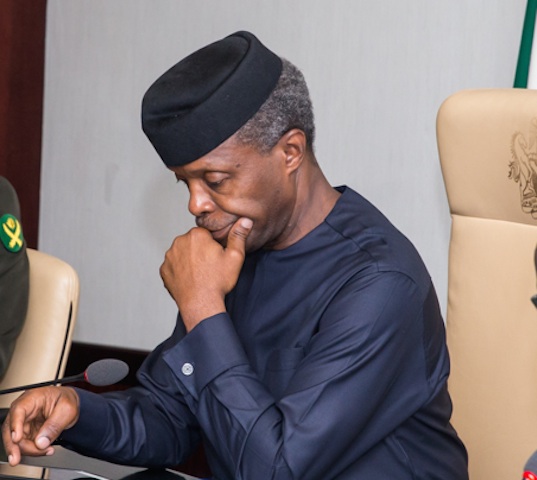
INEC Chairman, Mahmood Yakubu said ‘I regret’ is same as ‘I apologize’
Is ‘I regret’ same as ‘I apologize’?
By Fatoumata Oumar
Nigerians moved from different parts of the world to their respective polling units to cast their votes on Saturday. But they wake up on the election day to the news that the elections have been postponed.
Youths on the national service who were posted to ill-weather places as ad-hoc poll staff slept on the floor. People had planned their lives around the dates of the election. But all expectation crashed to the actions or inactions of one man.
Analysts said Nigeria would have lost about $1.5 billion dollars to that shift in election. But the cost would be much more than that. apart from the loss of physical cash, there are much more inconveniences, damages and deaths the shift of elections could cause.
Nigerians travelled to vote for who will be their president and their National Assembly representatives.
Peter Munachi, a businessman said he travelled from Bauchi, North-West Nigeria to his home town in Anambra, South-East Nigeria, about 470 miles and roughly 8 hours drive, to cast his vote but met the disappointment.
“I came back to this village yesterday from Bauchi because I want to vote. Now they have postponed the election. Look at my luggage, I plan to vote and travel back. Now, what do I do. I am the one paying for my transport. Will I go to Bauchi and come back next Friday or can I wait here? My shop is locked..”, Munachi said.
He is just one of the numerous Nigerians affected by the shift in the election schedule. Some people with smart business sense invested in some perishable food items meant to be sold to voters in the polling unit. The sharp shift in the schedule has put them at disadvantageous positions.
Nigerians are happy people. Just tell them, ‘sorry’, and you are forgiven. Life goes on, they would say.
The Independent National Electoral Commission (INEC) sent out a statement on the reasons the elections were shifted. They said logistics. The Chairman of the electoral umpire, Mahmood Yakubu said INEC accepted all responsibility for the shift in the election.
But there was no place in the statement the Commission apologized to Nigerians for causing the colossal loss.
The INEC called for a stakeholders’ conference on Saturday at the International Conference Centre in Abuja. After long explanations, there was no trace of ‘we are sorry’ anywhere. A distraught Nigerian, a woman called Yakubu’s attention to what seemed to be a mistake.
“Sir, I think that the INEC should apologize to Nigerians” over the postponement of the election. And the INEC Chairman retorted: “It is just a matter of the adjective you choose to use. If you look at the last paragraph of our statement, we should regretted what happened”. So, according to INEC Chairman, “we regret” is same We apologize”.
Yes. To apologize means to express regrets. But to express regrets is not same as saying ‘regrets’
To someone or people who have suffered a great loss over your inactions or mistakes, is it too much to say, “we apologize” “We are sorry” instead of hiding under technicalities?
I think that Nigeria’s INEC owes Nigeria and the world an apology to what happened on Satursday. To say that they regret the incident is not enough expression of regrets.




Recent Comments